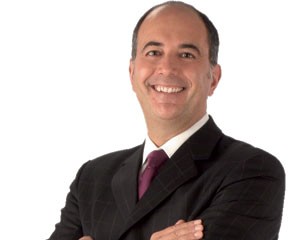And in a realm that’s morphed substantially, too. Mergers and acquisitions, computer auditing and other business concepts — the Concordia courses Imbriglio taught in the 1980s — have been supplanted by a more complex world of tax strategies and infrastructure financing, the latter of which is a speciality of sorts for the Montreal native.
“My father did a little dabbling in real estate. I think he aroused some of my interest in that field.” That and Imbriglio’s master’s in real estate finance, which proved handy in Raymond Chabot Grant Thornton’s role in the Centre Hospitalier de l'Université de Montréal financing project. “[The financing deal] won five international prizes,” Imbriglio boasts.
Why? Part of the reason is Imbriglio’s interest in public-private-partnerships (PPP), megaprojects funded and operated through government and the private sector.
Britain’s Conservative government introduced its private finance initiative in 1992, the first systematic program to encourage PPPs. “So our U.K. office was already doing that,” Imbriglio notes.
The business model took root in Quebec in 2005 when the province committed to PPP to build Montreal’s new symphony hall, two teaching hospitals, roads and bridges. Back then it was the best-known policy bulwark of former premier Jean Charest’s Liberal government.
Imbriglio recalls reading a Quebec Liberal Party document that set out a new way to build and finance infrastructure “such that risk is borne by those who are best equipped to handle it.”
“So instead of asking a doctor who heads a major hospital whether he should be repairing the roof or buying a new MRI machine, you’re asking the engineers to deal with the bricks and roof. You’re asking bankers if it’s going to be cost-effective. You reallocate the risk.”
It’s an interesting turn of phrase. As a newly minted chief executive, Imbriglio is committed to all but stamping out risk for his firm’s clients. Among other things, he worries about tax implications when privately-held enterprises change hands between parent and progeny.
“In Canada right now, it’s cheaper for a parent to sell his or her business to a foreign company than to sell to his children,” Imbriglio laments. “We lobby very hard to bring about some changes from a taxation point of view to obtain equity of treatment in intergenerational transfers.”
Concordia’s planned giving staff operate in a similar vien. Not only do they maximize tax benefits of donors’ planned gifts, their advice can fine-tune existing estate plans.
Imbriglio’s entrepreneurial spirit is palpable. His firm represents more than 50,000 businesses throughout Quebec, Ottawa and Edmundston, N.B., a fact Imbriglio is proud of. Yet he wonders if governments — federal and provincial — too often scrape the bottom of the revenue-ideas barrel and resort to taxes.
“I am absolutely surprised that we can’t be more creative than to continually go into people’s pockets in a country and a province with this kind of wealth.”
Imbriglio has his own creative ideas. The 53-year-old has set out a strategic reflection process, as he calls it, to improve his firm’s efficiency.
“The biggest challenges are going to be in the execution and change management. We are going get leaner and be able to make decisions quickly and maybe with less costs.”
Execution, lean operations and change management: It could almost be a JMSB case study from Imbriglio’s past.
Imbriglio says a part of him misses his teaching days, especially eager students. “There’s this energy that youth have. If we could bottle it and keep it, we all would. It doesn’t stay with everyone as they get older.”


 Emilio Imbriglio | Photo courtesy of Raymond Chabot Grant Thornton
Emilio Imbriglio | Photo courtesy of Raymond Chabot Grant Thornton